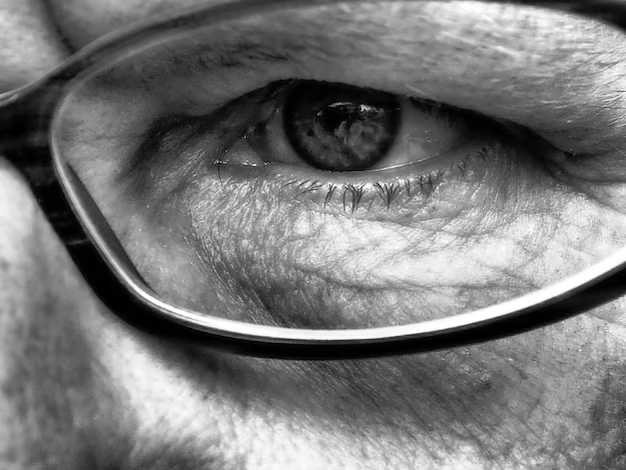Your Guide to Can You Get Cataracts After Lasik Surgery
What You Get:
Free Guide
Free, helpful information about Cataract FAQ and related Can You Get Cataracts After Lasik Surgery topics.
Helpful Information
Get clear and easy-to-understand details about Can You Get Cataracts After Lasik Surgery topics and resources.
Personalized Offers
Answer a few optional questions to receive offers or information related to Cataract FAQ. The survey is optional and not required to access your free guide.
Can You Develop Cataracts After LASIK Surgery? Exploring Key Insights and Considerations
The journey to clearer vision often leads many to consider LASIK surgery. Known for its ability to correct refractive errors such as nearsightedness and farsightedness, LASIK offers a chance to reduce dependence on glasses and contact lenses. But what happens after you've had the procedure? Specifically, a common question arises: Can you develop cataracts after LASIK surgery? Dive into this comprehensive guide to unravel the relationship between LASIK and cataracts, understand potential risks, and explore future eye health considerations.
Understanding LASIK and How It Works
What Is LASIK Surgery?
Laser-Assisted In Situ Keratomileusis (LASIK) is a popular and highly effective surgical procedure used to correct common vision problems. By reshaping the cornea, LASIK improves the eye's focus, potentially eliminating the need for corrective eyewear.
Key Steps in LASIK:
- Creation of a thin corneal flap.
- Reshaping of the corneal tissue with a laser.
- Repositioning of the corneal flap to function as a natural bandage.
Who Is an Ideal Candidate for LASIK?
While LASIK has helped millions achieve better vision, it's essential for prospective candidates to meet certain criteria:
- Generally healthy eyes and corneal thickness.
- Stable vision prescription for at least one year.
- Absence of certain conditions such as severe dry eye or advanced glaucoma.
LASIK is not suitable for everyone, and an eye care professional's evaluation is crucial to determine eligibility.
Exploring Cataracts: What Are They?
What Are Cataracts?
Cataracts occur when the lens of the eye becomes clouded, leading to blurred vision. This condition often develops with age and can affect one or both eyes.
Common Symptoms of Cataracts:
- Blurred or dim vision.
- Difficulty seeing at night.
- Sensitivity to light and glare.
- Seeing "halos" around lights.
How Are Cataracts Treated?
The most effective treatment for cataracts is surgery, where the cloudy lens is replaced with an artificial one. This procedure is generally safe and restores vision significantly.
The Link Between LASIK and Cataracts
Can LASIK Prevent Cataracts?
A Common Misconception: LASIK surgery does not prevent the formation of cataracts. Since LASIK modifies the cornea and not the lens, cataracts can still develop as an age-related change.
Is It Possible to Get Cataracts After LASIK?
Yes, individuals can develop cataracts after undergoing LASIK surgery. LASIK does not influence the natural aging process of the eye lens, making cataracts a potential development over time, similar to anyone who hasn't had LASIK.
Factors Contributing to Cataract Development
Several factors can accelerate the formation of cataracts, including:
- Age: The primary risk factor.
- Genetics: Family history can play a role.
- Lifestyle: Smoking and excessive sun exposure are contributing factors.
- Medical Conditions: Diabetes and prolonged use of steroids can increase risk.
Planning Ahead for Eye Health
Ensuring Long-Term Eye Health After LASIK
Even after LASIK, taking preventive steps can promote healthy vision:
- Regular Eye Exams: Regular check-ups are vital for early detection of cataracts and other conditions.
- Protective Eyewear: Sunglasses that block UV rays can help protect eyes from cataract-inducing damage.
- Healthy Lifestyle Choices: Maintaining a balanced diet and not smoking can positively impact eye health.
How Cataract Surgery Post-LASIK Works
If cataracts develop after LASIK, cataract surgery remains a viable option. Typically, cataract surgery involves replacing the cloudy lens with an artificial one, much like it would for any patient without prior LASIK.
Considerations for Post-LASIK Cataract Surgery:
- Accurate lens measurements may be more intricate due to prior corneal reshaping.
- Communication with the ophthalmologist about past LASIK surgery is essential for optimal treatment planning.
Practical Tips for Patients
Key Takeaways for Managing Eye Health
To support readers in maintaining optimal vision, consider these actionable steps:
- 👁️🗨️ Regular Monitoring: Stay vigilant with annual eye exams to catch any changes early.
- 🌞 Protect from UV Exposure: Wear high-quality sunglasses outdoors.
- 🥗 Nutritional Support: Incorporate eye-healthy nutrients, such as omega-3 fatty acids, lutein, and vitamins C and E.
- 🚭 Avoid Smoking: Smoking cessation can reduce cataract risk.
Conclusion: Adopting a Proactive Eye Health Routine
While LASIK surgery offers transformative results for correcting vision, it does not halt the natural progression of eye conditions like cataracts. Understanding that cataracts can still occur after LASIK provides a realistic perspective on eye health management. By staying informed and adopting good eye care practices, individuals can enjoy clear vision and maintain ocular health throughout their lives.
In navigating the nuances of LASIK and its long-term implications, building a relationship with a trusted eye care provider is invaluable. Proactive care, informed decisions, and a commitment to eye health are key steps in preserving vision well into the future.
What You Get:
Free Cataract FAQ Guide
Free, helpful information about Can You Get Cataracts After Lasik Surgery and related resources.

Helpful Information
Get clear, easy-to-understand details about Can You Get Cataracts After Lasik Surgery topics.

Optional Personalized Offers
Answer a few optional questions to see offers or information related to Cataract FAQ. Participation is not required to get your free guide.


